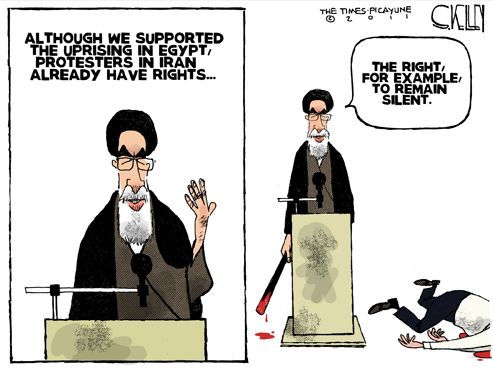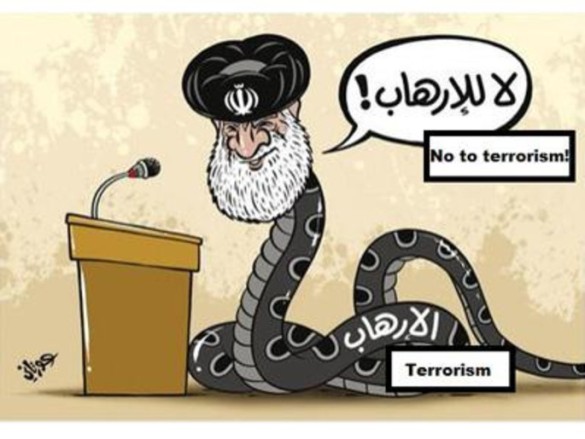The hanging of poet Hashem Shaabani tells you everything you need to know about Iran’s regime.
As Iranian poet Hashem Shaabani was dangling from a noose two weeks ago, desperately grasping for his last breath of air, one wonders what he would have thought about Western leaders who call President Hassan Rouhani a moderate. What exactly is moderate, Shaabani could have thought, about a regime which brands a poet an “enemy of God” and strangles him to death?
The crazy thing is that by the logic of the Iranian government, Shaabani had to be killed. He criticized God and the punishment for blasphemy is clear: death. Technically, Shaabani criticized the regime by speaking out against repression of ethnic Arabs in the Khuzestan province, but since the regime sees itself as the representative of God on Earth, his fate was sealed. It’s not called a theocracy for nothing.
Islamic scholar and former Iraqi parliamentarian, Iyad Jamal al Din, once told me of Iran’s Supreme Leader:
Ayatollah Khamenei is a man just like me. He’s a cleric and I’m a cleric. But he says, “I am the representative of God.” From him, these words make me sleepless. You all [in America] sleep normally because you don’t know what that means. I know what it means. He means that he is right and the others are wrong. And wrong must not live. You should be defeated and destroyed.
President Rouhani and foreign minister Mohamed Zarif are making quite a show of Iran’s supposed moderation. They speak at ritzy conferences in Davos and Munich, maintain Twitter and Facebook accounts (despite banning them in Iran) and talk of Iran’s commitment to peace and justice. But behind the soothing rhetoric is a regime which tortures journalists, imprisons bloggers and hangs poets.
As world powers attempt to negotiate an accord with Iran, they would do well to keep Shaabani in mind. What does the hanging of a poet have to do with nuclear negotiations? Everything. It gets to the heart of the nature of the regime.
Can the world trust a government which doesn’t even trust its own people? Can the West rely on a regime which so fears dissidents that it puts them to death? Can nukes be entrusted to the murderers of Neda, the young Iranian woman whose bloody death was captured on YouTube at a 2009 protest?
Shaabani, and the more than 300 Iranians executed since Rouhani took power, are powerful reminders that the Iranian government remains as fanatic as it is dangerous. The scores of students, bloggers and peaceful activists languishing in Evin prison are living testaments to Iran’s ongoing brutality.
When the Iranian government no longer fears its own people, then we will no longer have any reason to fear it.




